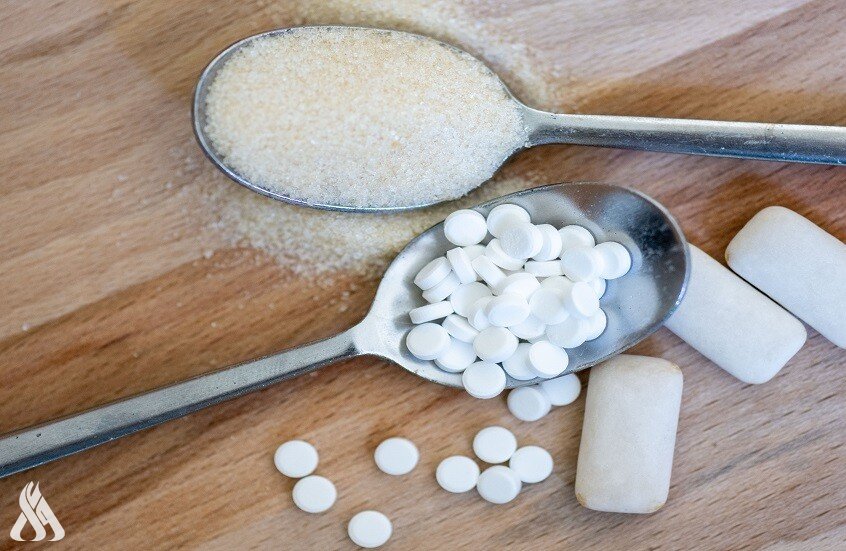
Beijing - Saba:
Researchers from China and Europe said that aspartame promotes the development of atherosclerosis and other vascular diseases, noting that it enters into the production of insulin and contributes to the development of inflammatory foci in the walls of blood vessels.
The scientific journal Cell Metabolism reported today that according to the results of experiments conducted by researchers on laboratory animals, eating foods containing 0.15 percent aspartame led to a sharp increase in insulin production in the bodies of mice and monkeys, which contributed to accelerating the formation of atherosclerotic plaques in the walls of blood vessels, which is linked to the activation of the CX3CL1 receptor in the walls of blood vessels under the influence of molecules of this hormone.
According to the researchers, the same thing happens to people who drink three cans of sugar-free soft drinks per day.
After three months of following this diet, the researchers discovered that the condition of the aorta and other blood vessels in the mice had deteriorated significantly, and cholesterol deposits and atherosclerotic plaques began to accumulate in their arteries, and inflammation increased compared to the control group rodents.
Aspartame consumption was also accompanied by a significant increase in their insulin levels.
The scientists found that the two phenomena were linked, as the high insulin levels associated with the overactivation of taste receptors led to the activation of CX3CL1 receptors in the walls of the blood vessels of the mice. This protein acts as a signal that attracts the attention of immune cells, macrophages and monocytes, whose penetration into the arteries and other vessels leads to the development of inflammation and the creation of ideal conditions for the formation of cholesterol plaques.
The researchers point out that after inhibiting the CX3CL1 receptors, aspartame stopped promoting inflammation and atherosclerosis in mice, and the same was observed in macaque monkeys, which confirms, according to them, that aspartame is capable of causing chronic inflammation and atherosclerosis, which must be taken into account when using it in the food industry and other areas of the economy